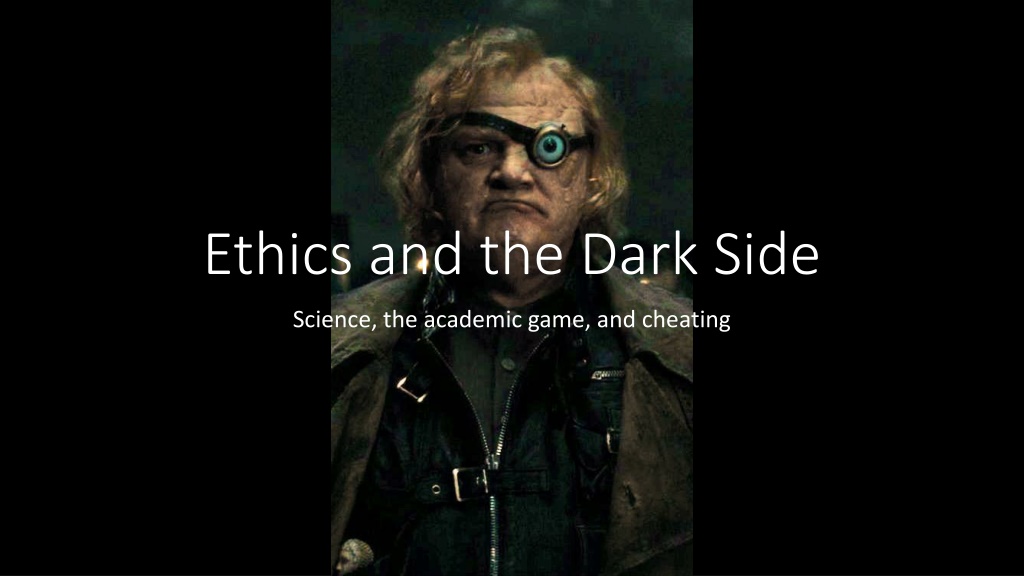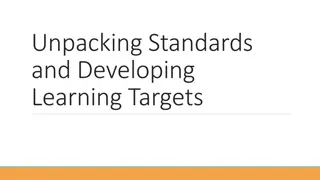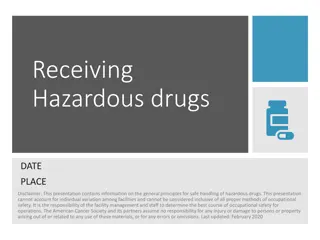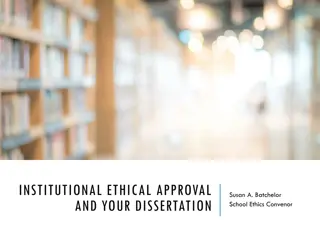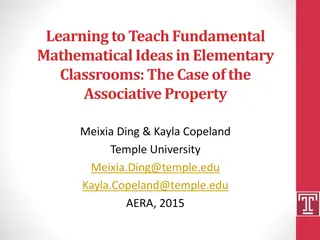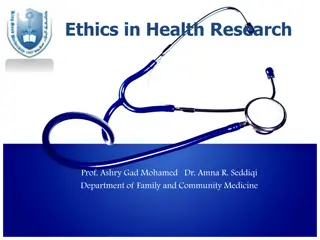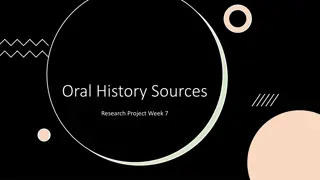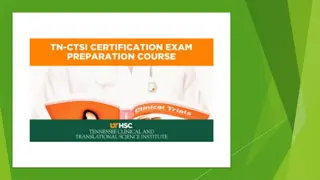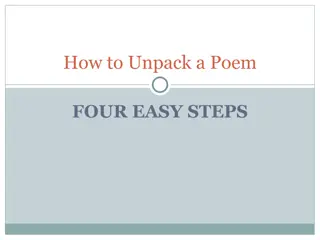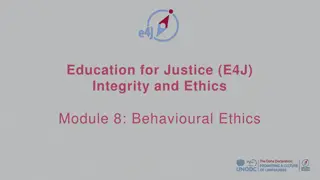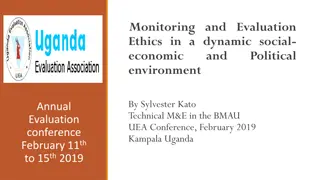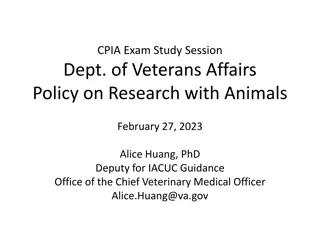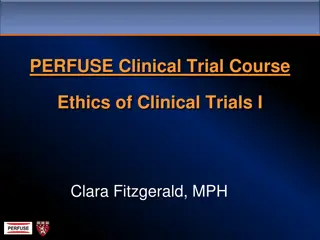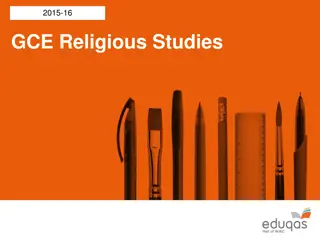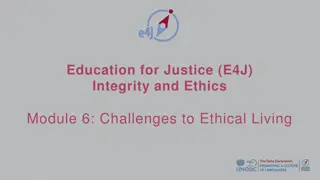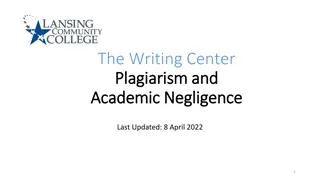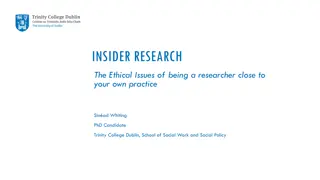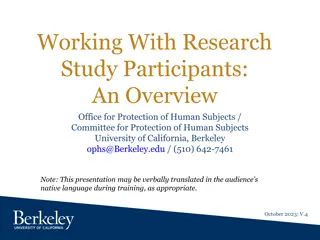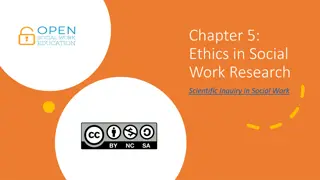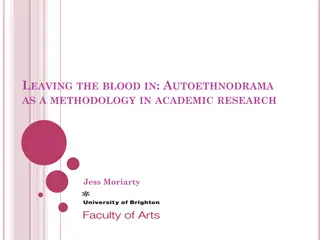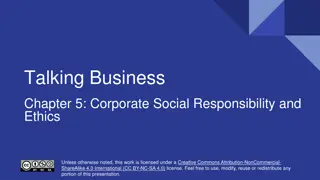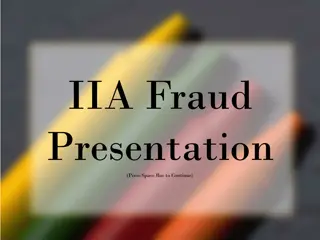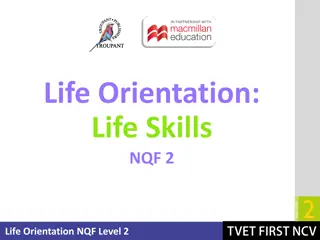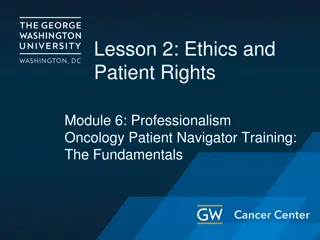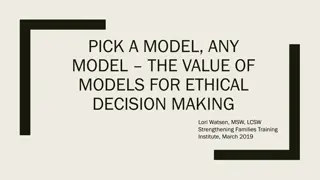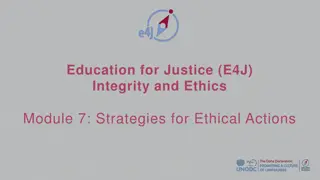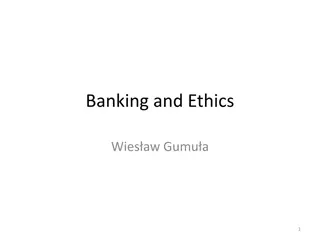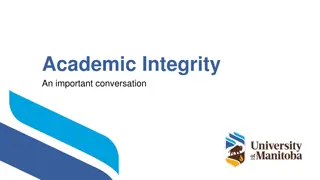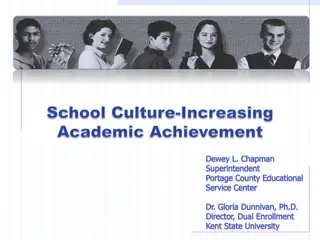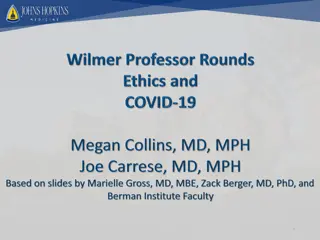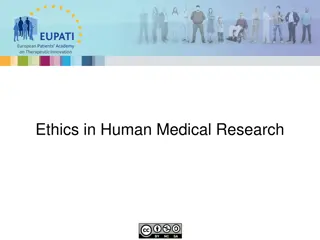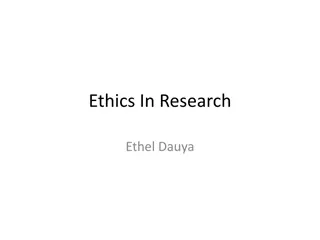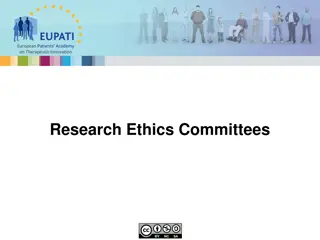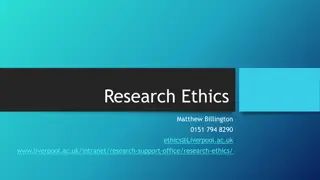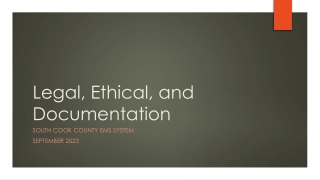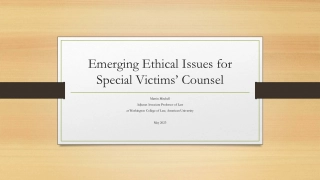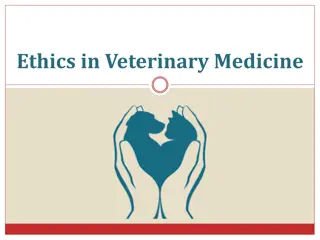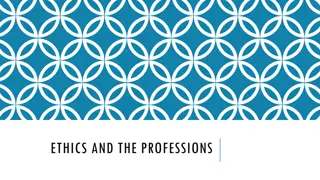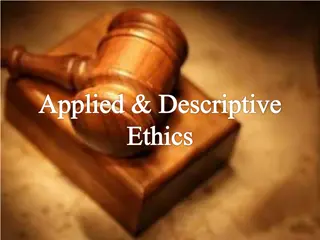Unpacking Ethical Issues in Academic Research
Exploring the broader landscape of ethics and plagiarism in academic research beyond Turnitin, diving into questionable research practices, like p-hacking and HARKing. Understanding the significance of recognizing unethical behavior and promoting integrity in scholarly pursuits, emphasizing the importance of transparency and precision in presenting scientific findings.
Download Presentation

Please find below an Image/Link to download the presentation.
The content on the website is provided AS IS for your information and personal use only. It may not be sold, licensed, or shared on other websites without obtaining consent from the author. Download presentation by click this link. If you encounter any issues during the download, it is possible that the publisher has removed the file from their server.
E N D
Presentation Transcript
Ethics and the Dark Side Science, the academic game, and cheating
Ethics beyond copy-pasting As a student, plagiarism is heavily emphasized in a Turnitin sense But ethics and plagiarism are much broader issues in research It s handy to be aware of these issues Don t unwittingly do unethical things yourself Don t have unethical things done to you The more people can recognize unethical behaviour, the harder it should be for bad actors to get away with misconduct
Concepts and source of further references Educating students and future researchers about academic misconduct and questionable collaboration practices The aim was to help people to develop and articulate their own position recognize questionable behaviour in others be aware of (implicit) institutional attitudes and policies And to raise awareness in general
Two types of ethical issues: QRPs and QCPs Questionable Research Practices, QRPs (John, Loewenstein & Prelec, 2012) Similar concepts: p-hacking, HARKing, researcher degrees of freedom, voodoo science This broadly refers to dishonesty involving data Torturing your data until it confesses Misleading others about results
QRPs p-hacking in general There are often very many analysis choices that can influence results p-hacking: Try them all and pick the one that suits you best! Selective reporting of (dependent) variables and conditions Results-dependent stopping of data collection Lying about an unexpected finding having been predicted (HARKing) Withholding information that could lead to criticism Outright fabrication (sometimes distinguished from QRPs) Hyping: exaggerating the importance or strength of a result
QRPs Academic practitioners know that the ultimate aim of science is to establish facts and they therefore must present the nature and scope of their results with the greatest possible precision. Accordingly, they do not prevaricate about their findings or about attendant uncertainties. Scrupulousness also entails the presentation of doubts and contraindications. Article 1.1 of the Code of Conduct of the University of Groningen.
QRPs The idea of QRPs is now very influential in psychology The replication crisis is considered to be due to widespread QRPs Misleading researchers, policymakers and the public to further personal ambitions can cause serious harm Wakefield s paper in The Lancet caused widespread antivax attitudes Investment of scarce resources in low-value projects Use of the wrong medical procedures Within academia: loss of public confidence in science, institutional reputation loss, rewards going to bad researchers with further knock-on effects The Stapel affaire
QRPs Attempts to counter QRPs: Open Science publicly provide all data, scripts and processes Minimize costs of honesty Minimize benefits of dishonesty Preregistration of analyses Tip: The Seven Deadly Sins of Psychology, by Dr. Chris Chambers
QCPs Questionable Collaboration Practices refer to non-methodological, social misconduct in science Scientists often work together and there are rules to follow or break These are less often made explicit than QRPs, but misconduct also causes harm to individuals and damage to science and society QRPs can be solved by just never taking any paper at face value... Some attention for QCPs in papers and policy statements Van Loon AJ (1997). Pseudo-authorship. Nature 389(6646):11 11. Gladwin TE (2018). Educating students and future researchers about academic misconduct and questionable collaboration practices. IJEI, 14:10.
QCPs QCPs are forms of exploitation and intellectual theft Questionable authorship practices Ghost authors (someone should be an author but isn t) Guest authors (someone shouldn t be an author but is) The tyranny of the incompetent Coercion: making other people do your work Stealing credit: plagiarism in the broader sense
QCPs Expos s of common dirty tricks in QCPs involving students, written by Brian Martin Martin (2016). Plagiarism, misrepresentation, and exploitation by established professionals: power and tactics Martin (2013). Countering Supervisor Exploitation
Martin (2013), Countering Supervisor Exploitation Some academic supervisors take undue credit for the work of their research students, causing damage to their careers and morale. Students should consider whether to acquiesce, leave, complain or resist. Students should be prepared for supervisor tactics of cover-up, devaluation, reinterpretation, official channels, and intimidation. Options for addressing exploitation include prevention, negotiation, building support, and exposure.
Martin (2013), Countering Supervisor Exploitation Fran was a PhD student in a research team. She became highly productive but was distressed that she had to share credit with non-contributors. Her supervisor put his name on every paper, even when she had done 90% of the work, and often her supervisor added one or two other names. In one case she had never heard of her nominal co-author.
Martin (2013), Countering Supervisor Exploitation Peter, a PhD student, made a discovery, which he eagerly shared with his supervisor. Six months later, his excitement turned to dismay and disgust when he spotted a recent article. His supervisor had published the results without even mentioning Peter's role.
Martin (2013), Countering Supervisor Exploitation Selena was preparing a postdoc application and obtained some useful feedback from her supervisor. She was startled, however, when he told her that he had put in a grant application in exactly the same area, with the same plan and hypotheses, in collaboration with a colleague. He had never before done research in this area.
Martin (2013), Countering Supervisor Exploitation These are examples of exploitation by academic supervisors. The supervisors took credit for their students' ideas and research work, sometimes sharing the credit further with others in what is called gift authorship or honorary authorship, designed to curry favour with collaborators and patrons.[2] In this sort of exploitation, the ideas and work of students and subordinates are expropriated to serve the supervisor's career and reputation.[...] Exploitation can be so highly entrenched in some academic cultures that it is treated as standard practice. It can be called institutionalised plagiarism.[3]
Martin (2013), Countering Supervisor Exploitation Although you also have to keep the other side of the story in mind Students might forget/ forget how much guidance they got Students could also steal ideas or findings
QCPs QCPs create the false appearance of merit This is a risk especially when metrics are used blindly E.g., Look at all my publications! Think: what did you actually do? Beware research rats and sharks Rats will use you the collaborator you don t really need Sharks will eat you the boss who knows how to squeeze you Take care especially in sandpit style events Be very critical: your time is valuable and you don t owe it to anyone
Conclusion and what to do? So: be aware of QRPs and QCPs as harmful forms of gamesmanship or cheating that fake actually doing science Think about what your view is: maybe you think they re great and you would like to commit them as much as possible! What if you re exposed to them? As a PhD student, it s often about: pressure to use QRPs; being blamed to cover up supervisor incompetence; or being exploited to do involuntary/uncredited work Research Office Build up informal knowledge ASAP Don t get cynical: vote with your feet Carefully choose collaborators, groups, institutes
